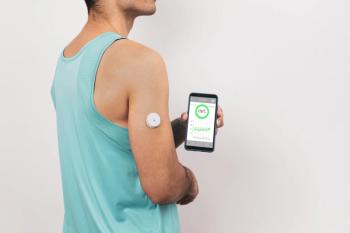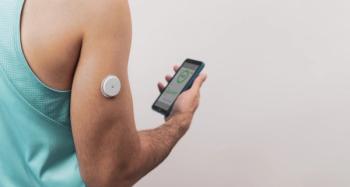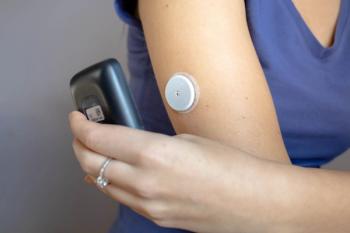
- Drug Topics July/August 2023
- Volume 167
- Issue 07
Pharmacists Applaud New Bionic Pancreas for Type 1 Diabetes
The iLet Bionic Pancreas combines data from the Dexcom G6 CGM with different algorithms to deliver insulin throughout the day.
Pharmacists are praising the FDA’s clearance of a new “bionic pancreas” that is paired with the Dexcom G6 Continuous Glucose Monitoring System (CGM) for type 1 diabetes (T1D).
Beta Bionics announced the clearance and the commercial launch of the iLet Bionic Pancreas in late May,1 noting that it is the first and only automated insulin-delivery system that does not require carb counting and fully automates 100% of all user insulin doses.
“As the first fully-automated insulin dosing system, the iLet changes the paradigm of diabetes management. By eliminating traditional setup, carb counting, and manual correction boluses, the iLet has removed many of the traditional tasks for both the user and healthcare provider,” said Sean Saint, president and CEO of Beta Bionics. “We hope that, for many people, the iLet helps to make diabetes a little bit easier.”
The iLet was designed to alleviate the work of diabetes management in everyday life and nearly eliminate the expertise that has been required to set up and manage a traditional insulin pump, Beta Bionics said. "With the iLet, health care providers can spend less time with the technology and more time with their patient.
“It is exciting to have more options for patients,” Diana Isaacs, PharmD, BCPS, endocrine clininical pharmacy specialist and director of education and training in diabetes technology at Cleveland Clinic Endocrinology & Metabolism Institute in Cleveland, Ohio, one of the iLet Bionic Pancreas’s clinical trial test sites, —told Drug Topics. The system is very simple to start—it only requires weight and having CGM and a carbohydrate awareness—as no exact carb counts are needed, Isaacs noted.
The iLet’s unique algorithms autonomously personalize insulin dosing for each person’s unique needs, according to Steven Russell, MD, PhD, chief medical officer at Beta Bionics. “This degree of automation relieves healthcare providers from the burden of reviewing blood glucose and CGM data in order to adjust pump settings, allowing them to spend more time discussing other needs. There are so many people with diabetes with stubbornly high HbA1c and low time in range, despite adjustments to their therapy.”
The iLet Bionic Pancreas is a “very exciting development in the realm of automated insulin-delivery (AID) systems,” Kevin Fuschetto, PharmD, BCACP, assistant professor of Pharmacy Practice at Northeast Ohio Medical University in Rootstown, Ohio, and director of clinical services for NEOvations Pharmacy Services, LLC in Rootstown, told Drug Topics. “This system simplifies the patient (and provider) burden that is sometimes related to the use of insulin pumps. This system makes 100% of insulin dosing decisions.”
For the patient, the need for “carb counting” is eliminated, Fuschetto added. “Patients will now estimate the amount of carbs for each meal by selecting ‘Usual for me,’ ‘More,’ or ‘Less.’ The system then continues to learn from the prior insulin dosing history of similar meals adjusting for future meals.”
And providers do not need to choose initial insulin regimens, such as basal rates, insulin-to-carb ratios, and insulin sensitivity factors. “The only number needed to start the system is the patient’s weight. This will greatly reduce the time spent creating, reviewing, and fine-tuning individual pump settings,” Fuschetto said.
The iLet Bionic Pancreas works by combining the glucose data from the Dexcom G6 CGM with the different algorithms (basal, correction, meal) to deliver the appropriate amount of insulin throughout the day, Fuschetto explained. Basal rates are updated every five minutes, correction doses continuously adapt to changing needs, and meal doses adjust based on prior meals and dosing history.
As with any automated insulin delivery system, patients need to know how to use the iLet Bionic Pancreas system and what to do if it is not functioning properly, Fuschetto explained. “For example, does the patient have a back-up plan if there is an issue with their CGM sensors?”
Patients also need to know that a CGM is required for the system to work properly. “The system does allow for limited time periods without a CGM sensor (48 hours in the first 7 days, 72 hours thereafter) with manual blood glucose checks but after the maximum allowed time periods, all insulin dosing from the iLet Bionic Pancreas stops and an alternative therapy must be available,” Fuschetto said.
Fuschetto also cautioned that if the patient’s weight is entered incorrectly, or if there have been drastic weight changes, that can lead to inappropriate insulin delivery. And, since carb counting is not a requirement for the iLet Bionic Pancreas, “Will that lead to a decreased emphasis on teaching and learning about carbohydrates and portion sizes?” Fuschetto asked. “These are all areas where proper patient counseling, education, and planning can play a role.”
Isaacs also has concerns with the use of the Bionic Pancreas by people with highly variable schedules such as shift workers or rapidly changing insulin needs, such as extreme physical activity. "Time will tell how this pump may perform for them. A randomized controlled trial is a very different setting compared to real world,” she noted.
Reference
1. Beta Bionics announces FDA clearance and commercialization of the iLet Bionic Pancreas. News release. Beta Bionics. May 22, 2023. Accessed June 9, 2023. https://www.betabionics.com/beta-bionics-announces-fda-clearance-and-commercialization-of-the-ilet-bionic-pancreas/
Articles in this issue
over 2 years ago
FDA Approves Sotagliflozin for Treatment of Heart Failureover 2 years ago
New Treatment Approved for Menopausal Hot Flashesover 2 years ago
Inside Insomnia: Pharmacist Management of Sleep Disordersover 2 years ago
Here’s a Tip: More Money Is the Solutionover 2 years ago
2023-2024 Flu Season: What to Expectover 2 years ago
Utilizing AI for Medication Managementover 2 years ago
ASHP: Adalimumab Biosimilar Pipeline ReviewNewsletter
Pharmacy practice is always changing. Stay ahead of the curve with the Drug Topics newsletter and get the latest drug information, industry trends, and patient care tips.























